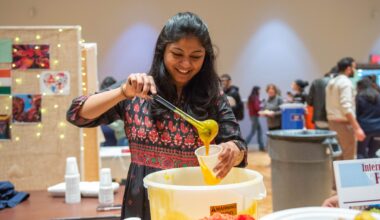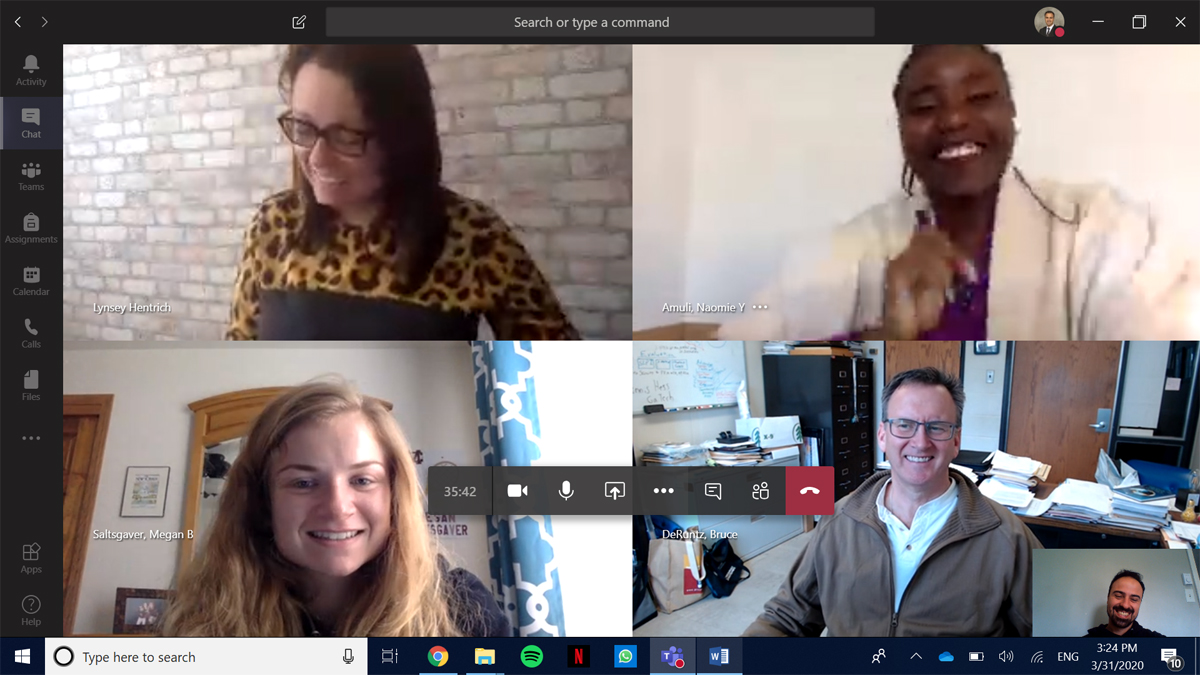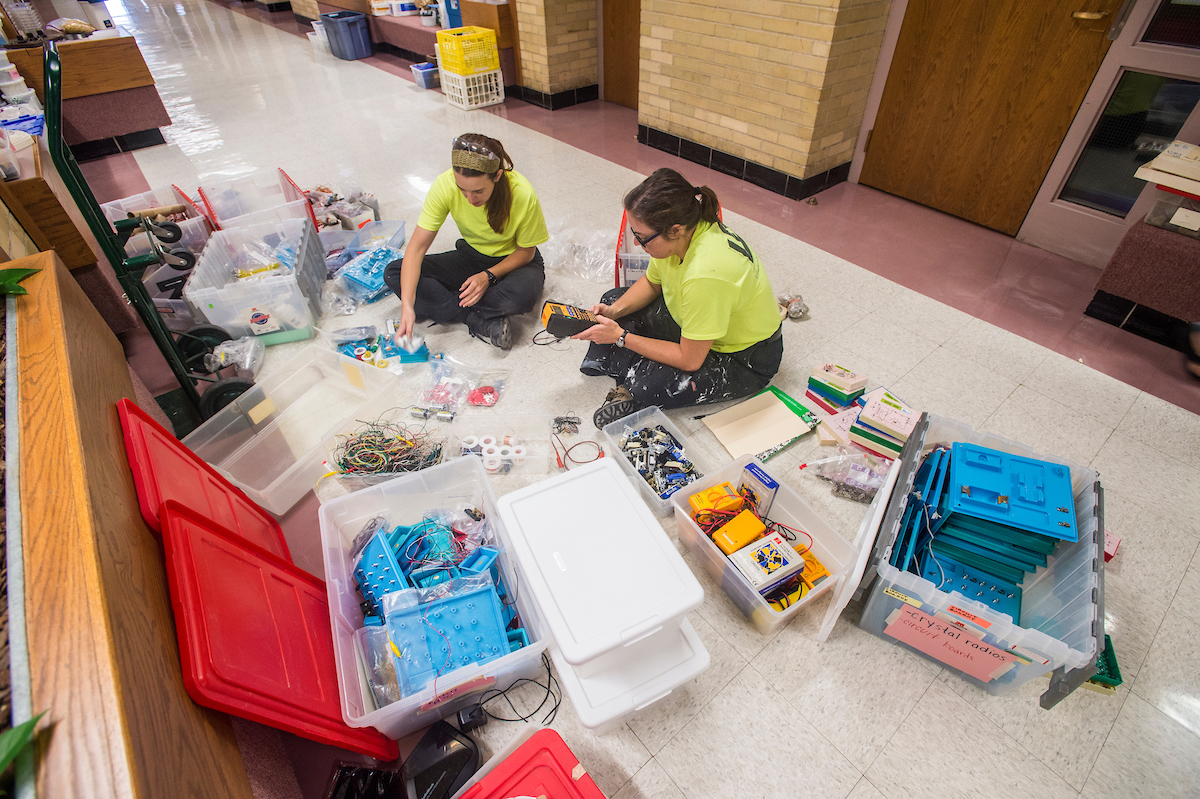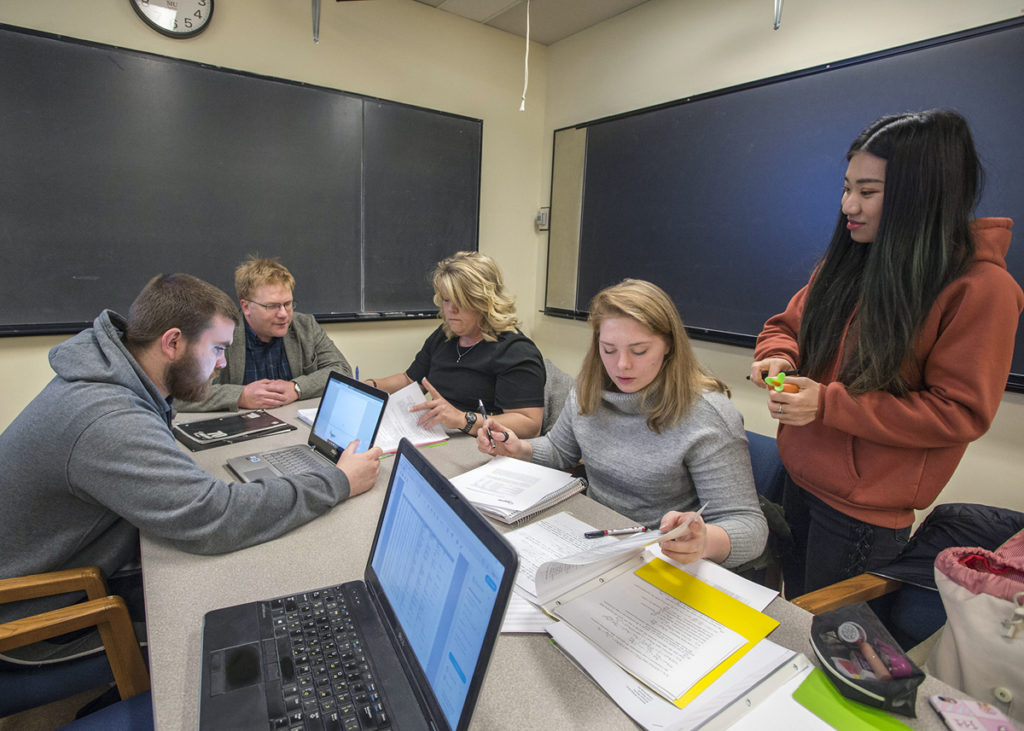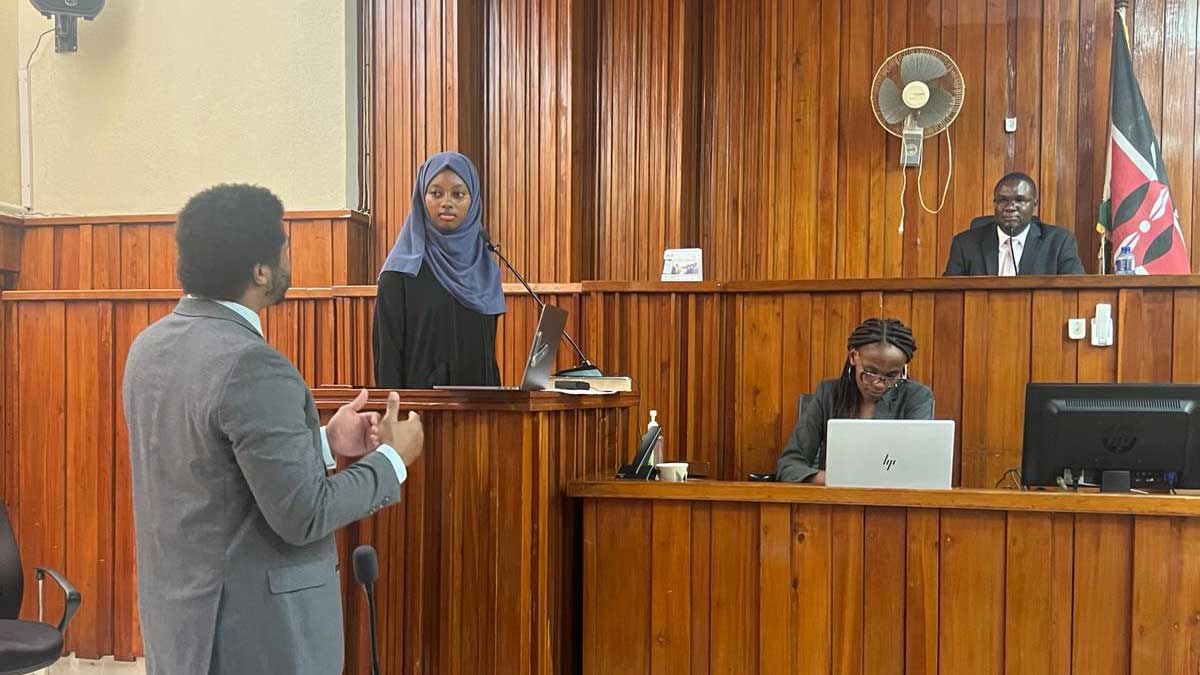
For Southern Illinois University Carbondale law students Kameron Clay and Paige Berger, 8 days in Kenya as part of Simmons Law School’s legal globalization and comparative law course is a time they will not forget.
“My experience in Kenya opened my eyes to the world and how much more it has in store than just what is in the U.S.,” said Clay, a third-year student from St. Louis. “The trip made me realize how privileged I am to be a law student in America. Since coming back, I have been reluctant to take even the simple things for granted.”
For Berger, a second-year student from Willowbrook, Illinois, this was “a big opportunity” to participate in a mock trial. It also gave her a chance to learn to work with people whom she had not met before “and instantly start collaborating and connecting with each other.”
Clay and Berger were among 14 SIU students from Simmons Law School to spend spring break in March studying the Kenyan legal system. Course co-instructors Professor Chris Behan and Dean Camille Davidson and the SIU students participated with 18 University of Nairobi School of Law students, who came from three campuses.
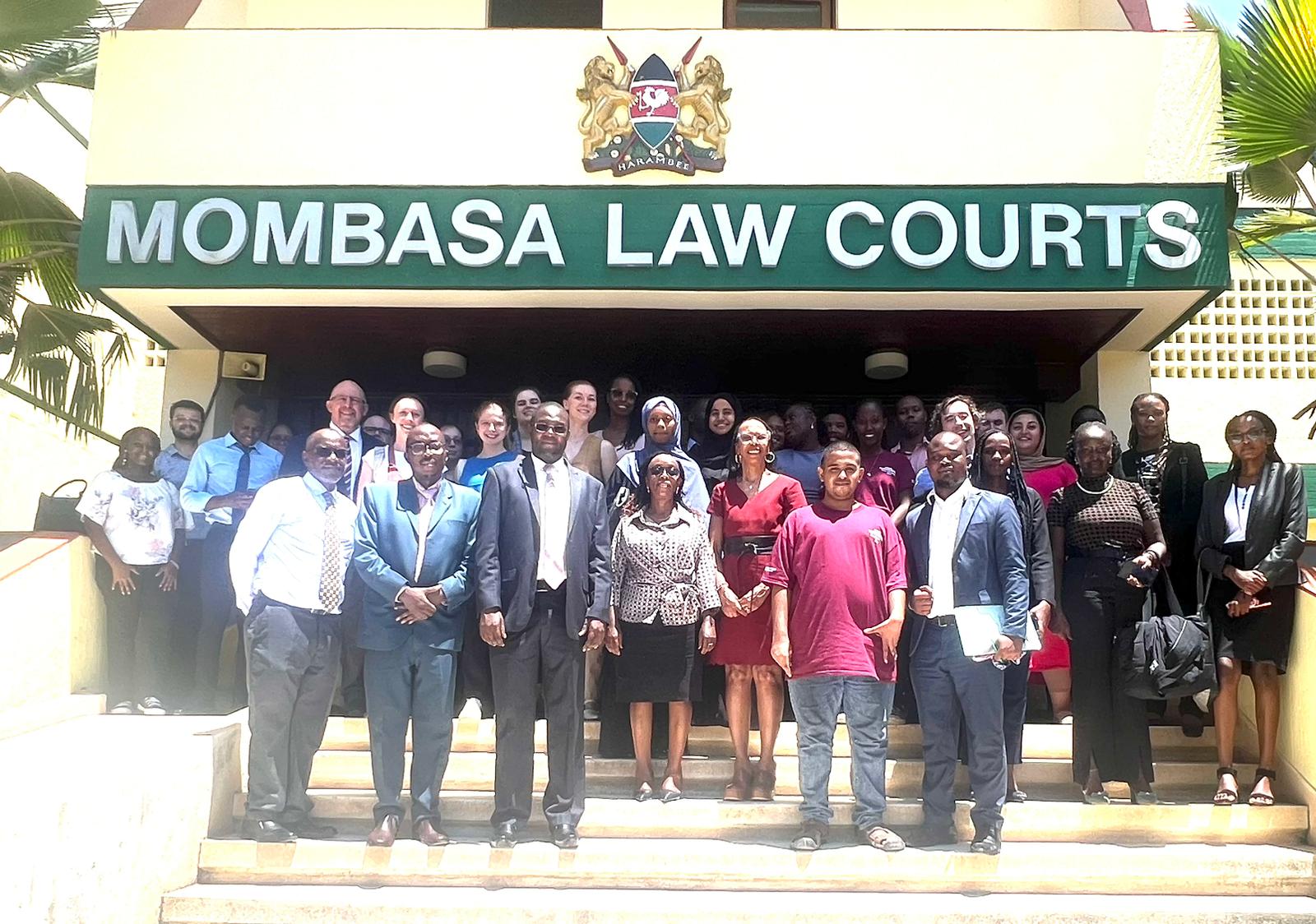
“The goal was to form hybrid teams of American and Kenyan law students who would learn how to form cross-cultural teams and work effectively together across distances and cultures,” Behan said. “We felt this would be excellent preparation for our students to function at a high level in an increasingly globalized workplace environment.”
SIU students received lessons on basic trial techniques from both Kenyan and American instructors, and as teams, met via online videoconferencing programs to prepare and try a case based on Kenyan law in a Kenyan magistrate court in a live mock trial competition at the Nairobi law school’s Mombasa campus.
Evenly divided teams
The students formed eight teams, with most of them having two Americans and two Kenyans, Behan said. Each team was coached by a Kenyan lawyer from the Mombasa Law Society; the lawyers volunteered their time and expertise.
“We did not want the competition to be the United States versus Kenya, or Southern Illinois University versus the University of Nairobi,” Behan said. “Rather, we wanted each hybrid team to form its own identity, figure out how to work together from a distance and with different time zones, and compete against other similarly situated teams.”
Clay said his most gratifying part of the trip was “the immediate connection that I had to my team after meeting them for the first time in person.”
“My Kenyan teammate, Arike Omwango, and I were truly dynamic in our mock trial competition as if we’d tried cases together before,” he said. “It was rewarding to have such a strong performance alongside her given that we had only met and practiced a handful of times.”
Berger added that all of the students easily connected to one another.
“Everyone we met and worked with was so nice, and it felt like we instantly became friends,” she said.
She earned a bachelor’s degree in political science from the University of Illinois at Urbana-Champaign. After moving to St. Louis and working for an area law firm, she applied to law schools and toured SIU.
“I loved how small the class sizes were and the sense of community throughout the school and the town,” said Berger, who will graduate in May 2025. She plans to pursue bankruptcy law.
Clay earned a bachelor’s degree in psychology with a minor in multicultural studies, so the experience in Kenya “took my knowledge in that regard to new levels,” he said.
He will graduate from law school on May 10 and said he selected SIU “to become a zealous advocate for the oppressed and downtrodden.” Clay said his plan is to start working as a public defender or as an attorney for a legal aid office. After gaining sufficient courtroom experience, he wants to become a plaintiff’s personal injury attorney.
Legal globalization course experiences
This was the latest legal globalization and comparative law course offered at the law school — others taught by faculty focused on Germany, Australia, Cuba, South Africa and Botswana, Behan said. The idea for this trip began in 2016 when Behan traveled to Mombasa to teach a trial advocacy course. During the COVID-19 pandemic, he taught a comparative law writing seminar and invited several guest speakers to speak to students via Zoom. Behan said the experience showed a distance-learning collaborative course for both American and Kenyan students could be accomplished.
The experience exceeded Behan’s expectations, he said.
“The students figured out how to work together as teams,” he said. “By the time they met each other in person, they had already been working with each other for more than a month, and it was as if they were reuniting with old friends. The competitive environment spurred them to prepare and perform at a high level. Every team wanted to win, and every trial round was highly competitive.”
